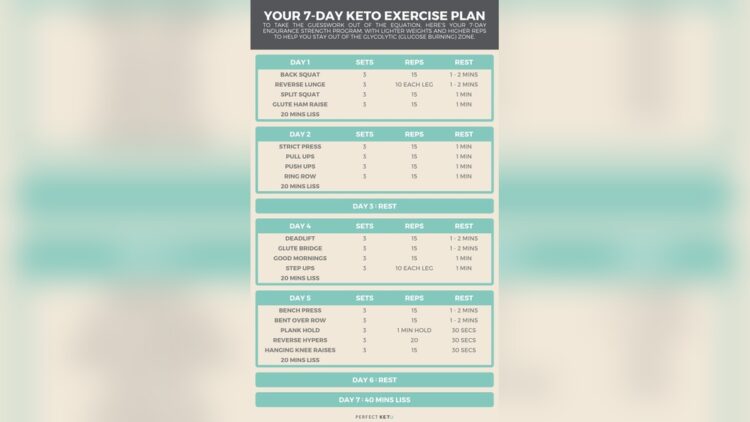If you’re facing a weight loss problem, focus on a balanced diet and regular exercise for effective results. Weight loss can be a challenge for many people, but it is achievable with the right approach.
A combination of healthy eating and physical activity is essential for losing weight and maintaining a healthy lifestyle. By adopting a balanced diet that includes a variety of nutritious foods and reducing your intake of processed and sugary foods, you can create a calorie deficit and promote weight loss.
Additionally, incorporating regular exercise into your routine can help burn calories, build lean muscle, and boost your metabolism. Remember, consistency is key, and making gradual, sustainable changes to your lifestyle will yield lasting results.
Understanding Obesity
Obesity can pose significant challenges for weight loss. Understanding the complex factors contributing to obesity is crucial for effective management, which may include diet, exercise, and lifestyle changes. Seeking professional guidance by healthcare providers or nutrition experts can provide personalized strategies for successful weight loss.
Obesity is a complex health issue that affects millions of people worldwide. It is characterized by excessive body fat accumulation, leading to a higher risk of various health problems. Understanding the causes of obesity and the potential health risks associated with it is essential in tackling this prevalent issue.
Causes Of Obesity
Obesity does not have a single cause but is typically a result of multiple factors. Some common causes of obesity include:
- Poor Diet: Consuming foods that are high in calories, sugar, and unhealthy fats can contribute to weight gain.
- Inactivity: Leading a sedentary lifestyle with minimal physical activity can lead to weight gain and obesity.
- Genetics: Some individuals are genetically predisposed to obesity, making it more challenging for them to maintain a healthy weight.
- Environmental Factors: Modern environments with easy access to unhealthy food options and limited opportunities for physical activity can contribute to obesity.
Addressing these factors and making lifestyle changes is crucial in managing and preventing obesity.
Health Risks Associated With Obesity
Obesity is not just a cosmetic concern; it is a significant risk factor for various health conditions. Some of the health risks associated with obesity include:
- Heart Disease: Obesity increases the risk of heart disease, including conditions such as high blood pressure, heart attacks, and stroke.
- Type 2 Diabetes: The majority of individuals with type 2 diabetes are overweight or obese due to increased insulin resistance.
- Joint Problems: Excess weight puts additional strain on the joints, leading to conditions such as osteoarthritis.
- Certain Cancers: Obesity is linked to an increased risk of developing certain types of cancer, including breast, colon, and kidney cancer.
- Sleep Apnea: Obese individuals are more likely to suffer from sleep apnea, a disorder characterized by breathing interruptions during sleep.
These are just a few examples of the health risks associated with obesity. By understanding these risks, individuals can become more motivated to make positive changes and work towards achieving a healthy weight.
Effective Weight Loss Strategies
Losing weight requires a combination of healthy eating habits and regular physical activity. By adopting these effective strategies, you can achieve your weight loss goals and improve your overall well-being.
Healthy Eating Habits
Eating a balanced and nutritious diet is crucial for successful weight loss. By following these healthy eating habits, you can fuel your body with the nutrients it needs and shed those extra pounds:
- Avoid sugary beverages like soda and fruit juices, as they are high in calories and lack nutritional value.
- Include lean proteins like chicken, fish, and tofu in your meals to promote satiety and build muscle mass.
- Consume plenty of fruits and vegetables, as they are low in calories and packed with essential vitamins and minerals.
- Choose whole grains over refined grains, as they are rich in fiber, which aids in digestion and keeps you feeling full for longer.
- Limit your intake of processed foods, which are often high in added sugars, unhealthy fats, and sodium.
Importance Of Physical Activity
Alongside healthy eating, regular physical activity is essential for weight loss. Incorporate the following strategies to increase your fitness level and burn those extra calories:
- Engage in at least 150 minutes of moderate-intensity aerobic activity, such as brisk walking, cycling, or swimming, every week.
- Incorporate strength training exercises into your routine to build lean muscle mass and boost your metabolism.
- Take active breaks throughout the day, such as walking instead of driving short distances or taking the stairs instead of the elevator.
- Find activities you enjoy, such as dancing, hiking, or playing a sport, to make exercise a fun and sustainable part of your lifestyle.
- Stay consistent with your physical activity by scheduling them into your daily routine and finding an accountability partner.
Mindset And Motivation
When it comes to weight loss, having the right mindset and motivation is crucial for success. Your mental attitude towards your weight loss journey can make a significant difference in achieving your goals. In this section, we will discuss overcoming psychological barriers and setting realistic goals to help you stay motivated and focused on your weight loss journey.
Overcoming Psychological Barriers
The first step in achieving weight loss success is to address any psychological barriers that may impede your progress. Many individuals struggle with self-doubt, negative self-talk, and emotional eating habits, all of which can hinder weight loss efforts. To overcome these barriers, it’s important to cultivate a positive mindset and seek support from friends, family, or a professional who can help you navigate these psychological obstacles.
Setting Realistic Goals
Setting realistic and achievable goals is crucial for maintaining motivation throughout your weight loss journey. Instead of aiming for a drastic and unsustainable weight loss target, focus on setting small, attainable goals that you can work towards gradually. For example, aiming to lose 1-2 pounds per week or incorporating regular exercise into your routine can be more sustainable and motivating in the long run. These small victories can keep you motivated and prevent feelings of frustration or disappointment.

Credit: www.amazon.com
Professional Support
When it comes to finding effective weight loss solutions, professional support plays a crucial role in achieving long-term success. Seeking guidance from healthcare providers, dietitians, and fitness trainers can significantly increase your chances of reaching your weight loss goals and maintaining a healthy lifestyle.
Role Of Healthcare Providers
A personalized approach to weight loss: Healthcare providers, such as doctors and nurses, understand the importance of tailoring weight loss plans to individual needs. They assess your overall health, identify any underlying issues that may affect your weight, and design a comprehensive plan that takes into account your specific goals and circumstances.
Tracking progress: These professionals also monitor your progress regularly, ensuring that you stay on track and make any necessary adjustments along the way. They provide ongoing support and guidance, keeping you motivated and accountable throughout your weight loss journey.
Dietitians And Fitness Trainers
Expert nutrition advice: Dietitians are trained to offer customized meal plans that are balanced, nutritious, and aligned with your weight loss goals. They offer guidance on portion control, food choices, and healthier alternatives, helping you develop a sustainable and enjoyable eating plan.
Effective workout routines: Fitness trainers play a vital role in helping you incorporate regular physical activity into your weight loss plan. They create workout routines that are suitable for your fitness level, ensuring that you engage in activities that are safe, effective, and enjoyable. Trainers also provide motivation and encouragement, helping you push past potential barriers and stay consistent with your exercise routine.
By seeking professional support from healthcare providers, dietitians, and fitness trainers, you gain access to expert knowledge, personalized guidance, and ongoing support, setting you up for success in your weight loss journey. Remember, reaching your goals is not only about the numbers on the scale, but also about developing sustainable habits that promote overall well-being.
Staying On Track
When it comes to weight loss, staying on track can be one of the biggest challenges. It’s easy to start strong, but as time goes on, motivation can waver and old habits can start to creep back in. In this section, we will discuss two key strategies for staying on track: managing plateaus and incorporating lifestyle changes.
Managing Plateaus
Plateaus are a common occurrence during weight loss journeys. After experiencing initial progress, you may find that your weight loss stalls, despite your continued efforts. Plateaus can be frustrating and demotivating, but it’s important not to get discouraged. Instead, take the opportunity to reassess your approach and make necessary adjustments.
Here are some effective strategies for managing plateaus:
- Make changes to your exercise routine: Your body may have adapted to your current exercise regimen. Try incorporating new activities or increasing the intensity to challenge your muscles and jumpstart your metabolism.
- Review your diet: Small changes to your eating habits can make a big difference. Consider reducing portion sizes, focusing on nutrient-dense foods, and monitoring your calorie intake.
- Stay consistent: Sometimes, plateaus can be temporary and breaking through requires consistent effort. Stick to your routine, even when results seem stagnant, and trust that your hard work will pay off in the long run.
Incorporating Lifestyle Changes
While diet and exercise are key components of weight loss, making sustainable lifestyle changes is essential for long-term success. True transformation occurs when healthy habits become a natural part of your daily life. Here are some tips for incorporating lifestyle changes:
- Gradual changes: Instead of completely overhauling your lifestyle overnight, focus on making small, gradual changes that you can sustain over the long term. This can include swapping unhealthy snacks for nutritious alternatives or finding ways to incorporate more movement into your daily routine.
- Set realistic goals: It’s important to set achievable goals that are specific, measurable, and realistic. This will help you stay motivated and track your progress along the way.
- Find support: Surround yourself with a supportive network of friends and family who understand and encourage your weight loss journey. Additionally, consider joining a weight loss support group or seeking guidance from a professional nutritionist or personal trainer.
Incorporating lifestyle changes and managing plateaus are two crucial elements of staying on track with your weight loss goals. By implementing these strategies, you can overcome obstacles, maintain motivation, and achieve long-lasting results.

Credit: actifiber.in
Frequently Asked Questions On Weight Loss Problem
How Can I Lose Weight Naturally?
To lose weight naturally, focus on a balanced diet, regular exercise, and healthy lifestyle choices. Eat a variety of whole foods, including fruits, vegetables, lean proteins, and whole grains. Engage in physical activities that you enjoy, such as walking, swimming, or cycling.
Get enough sleep, manage stress, and stay hydrated for optimal weight loss results.
Are There Any Effective Weight Loss Supplements?
While some weight loss supplements claim to be effective, it’s essential to consult with a healthcare professional before taking any. They can provide guidance on safe and reputable supplements. Remember, weight loss supplements should never be a substitute for a healthy diet and regular exercise.
What Are The Benefits Of Weight Loss For My Health?
Weight loss offers numerous benefits for your health. It can reduce the risk of chronic conditions like heart disease, diabetes, and certain cancers. Losing weight can also improve your energy levels, sleep quality, and overall well-being, ultimately leading to a longer and healthier life.
Conclusion
Incorporating healthy habits and exercise can help in addressing the weight loss problem. By focusing on long-term lifestyle changes and creating a balanced routine, individuals can achieve sustainable results. It’s important to be patient and consistent, seeking support when needed.
Remember, small steps can lead to significant progress on the weight loss journey.












Leave a Reply